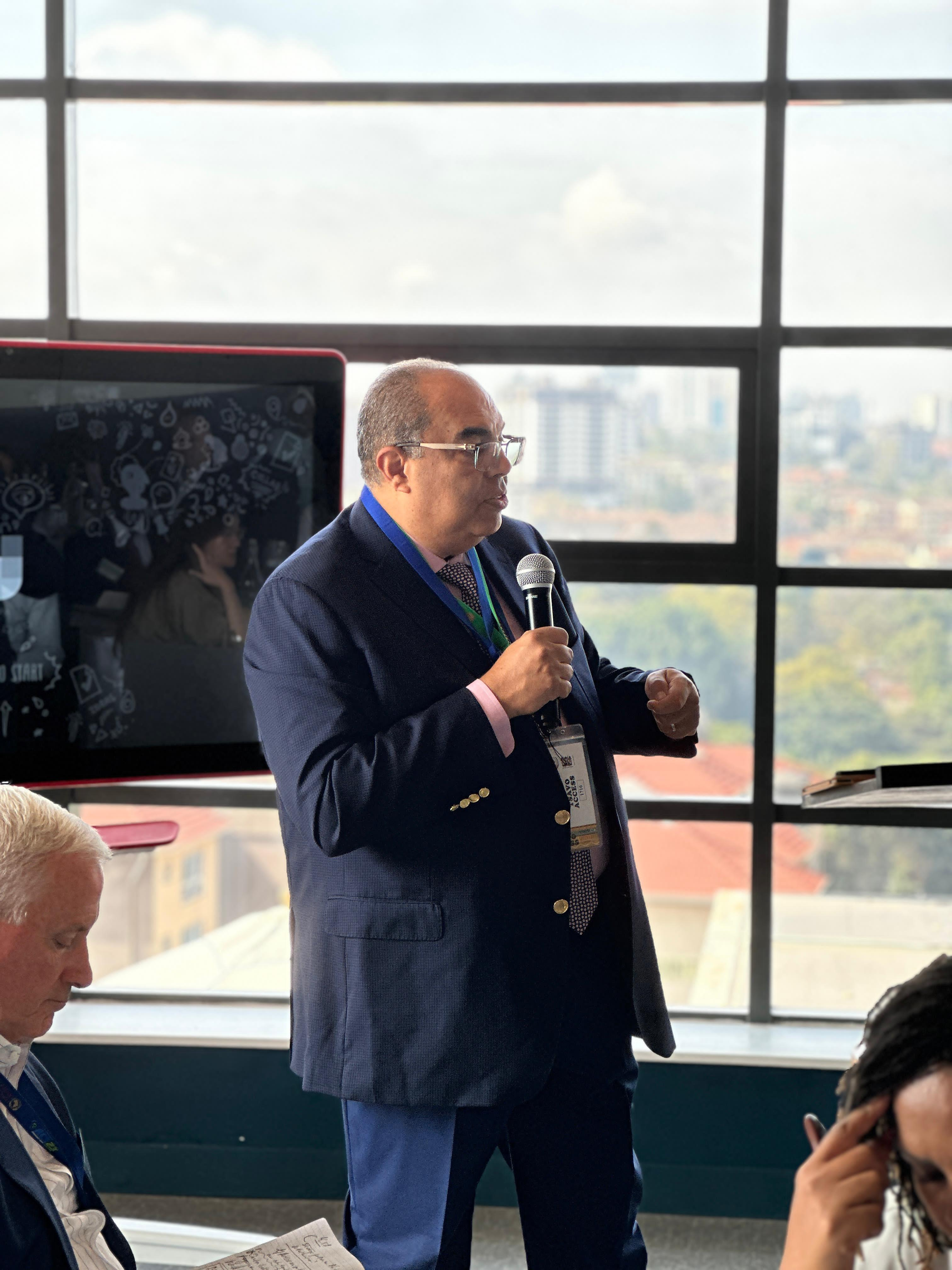
Dr. Mahmoud Mohieldin, UN Climate Change High Level Champion for Egypt and UN Special Envoy on Financing 2030 Sustainable Development Agenda, said that the Five Regional Roundtables Initiative and the National Initiative for Smart Green Projects (NISGP) contributed to finding solutions to finance and implement climate and development action at the regional and local levels.

This came during his participation in a session entitled “Private Roundtable: Mobilizing Domestic Capital for Climate-Positive Growth” within the events of Africa Climate Summit (ACS) that takes place in Nairobi, Kenya.
Mohieldin stated that COP27 in Sharm El Sheikh has given climate action momentum at the global, regional and local levels, adding that last year witnessed intensive work that aimed at financing and implementing climate activities, and enhancing the global, regional and local dimensions of climate and development action.
Mohieldin noted that the independent high level experts group on climate finance formed by British and Egyptian presidencies of COP26 and COP27 released an important report on mobilizing necessary finance for climate and development activities at the international level by identifying financing gaps and working to find mechanisms to bridge them, explaining that climate and development action requires annual funding exceeding five trillion dollars, of which about $2.5 trillion must be directed to climate action alone, provided that $1.4 trillion is mobilized from domestic financing sources, and about $1 trillion from external sources such as IFIs, MDBs and development partners.
He explained that the report stressed the need of activating mechanisms that catalyst and facilitate the process of mobilizing finance and mitigate risks of financing and investment, such as credit insurance, credit enhancement and partnerships with development finance institutions, pointing to the importance of the market capital, the private sector and taxes as local sources of financing, and the need to maximize the capital of MDBs and adopt new financing policies to enhance their capacity as external sources of financing.
“The Five Regional Roundtables launched by the Egyptian presidency of COP27 in cooperation with the UN regional economic commissions and HLCs, which created regional platforms that work to find solutions for climate and development action.” Mohieldin said, adding that the initiative also succeeded in stimulating the efforts of various parties such as governments, private sector, financing institutions and civil society to finance and implement the promising development and climate projects resulting from the initiative.
In this regard, Mohieldin explained that the African Network of the Glasgow Financial Alliance for Net Zero (GFANZ Africa) will showcase investable and bankable African development and climate projects to benefit from the financing announced by the UAE to support climate and development action in Africa.
Mohieldin said that the third initiative is the National Initiative for Smart Green Projects in Egypt, which presents a model for localizing climate and development action and encouraging investment in environmentally friendly development projects that rely on the latest technologies.
He stated that the number of projects that participated in the initiative over two years reached 12,000, ranging from large, small and medium-sized projects, women and youth projects, and voluntary non-profit projects, adding that the winning projects in the first version of the initiative were showcased during t COP27 in Sharm El Sheikh and some other forums, and succeeded in drawing attention of financing institutions and development banks inside and outside Egypt.
In the Marrakech Partnership session on global climate action, attended by many NSAs that are members in the partnership, Mohieldin emphasized that some developing countries, especially in Africa, face challenges to mobilize financing for climate and development activities from domestic sources, including debt crises, legislative constraints and the existence of other financing priorities, which make it difficult for the private sector to participate in financing and implementing climate and development projects, adding that, therefore, concessional financing from external sources should play the largest role in the implementation of climate and development projects in these countries.
The climate champion said that various taxes and service revenues are among the most important sources of domestic finance, especially in developing countries, confirming the importance of integrating domestic and national finance and the participation of the private sector, civil society and philanthropies in mobilizing financing at the city level.
He explained that Africa, rich in clean energy sources, can play a major role in implementing energy transition and thus contribute to reducing emissions, but it needs financial and technical support in order to benefit from its new and renewable energy resources in providing clean energy to its people and export them abroad, which underlines the importance of concessional financing that IFIs and MDBs can provide for the implementation of energy projects in Africa.



 554
554





_0pfpercg.jpg)
_t4dsi42w.jpg)

_wcl7e9hi.jpg)

_rio3419y.jpg)











